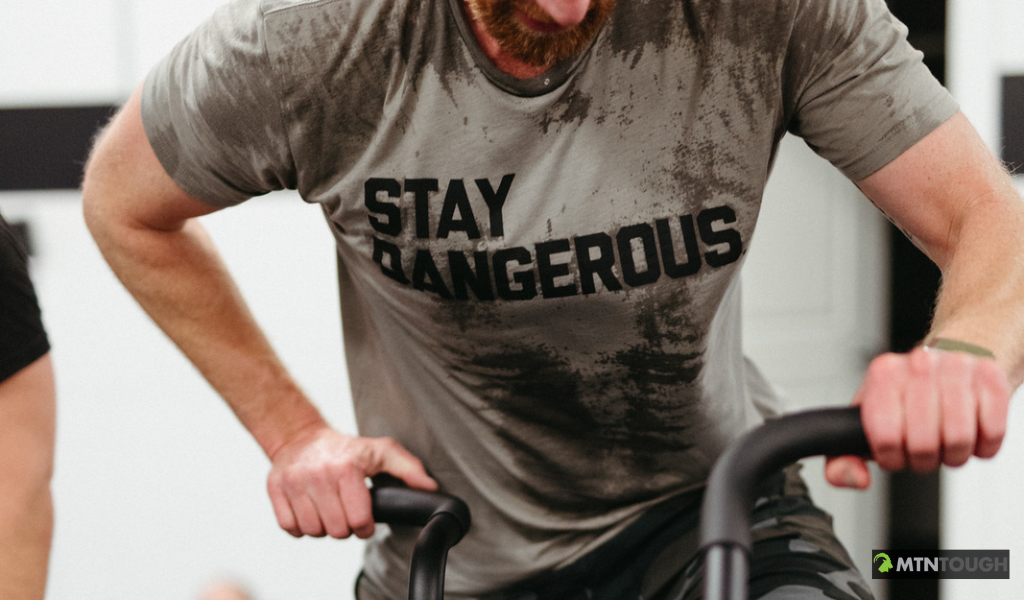Introduction: The Unseen Force Behind Fieldcraft
Fieldcraft, the art and skill of surviving and thriving in challenging outdoor environments, requires a combination of technical know-how and psychological resilience. While many focus on physical endurance, navigation skills, and resourcefulness, mental toughness often remains the unsung hero in fieldcraft success. The ability to endure stress, remain focused in high-pressure situations, and make clear-headed decisions in the face of adversity often determines whether someone can master fieldcraft or fail under pressure.
In this article, we explore the significant role mental toughness plays in fieldcraft and how developing this mental strength can be the difference between failure and success in the field. From military operations to wilderness survival, mental resilience is what helps individuals push beyond their limits and perform optimally when physical and environmental factors seem to be working against them.
What is Mental Toughness?
Before diving deeper into its importance in fieldcraft, let’s first define what mental toughness means. It is commonly described as the psychological edge that enables individuals to persist in challenging situations, overcome obstacles, and thrive under pressure. Mental toughness involves various factors such as confidence, resilience, emotional regulation, and focus.
The key traits of mentally tough individuals include:
- Resilience: The ability to bounce back from setbacks.
- Focus: The capacity to maintain attention and clarity amidst distractions or adversity.
- Confidence: The belief in one’s abilities, even in uncertain situations.
- Emotional Control: The ability to manage emotions like fear, frustration, or anger to prevent them from negatively affecting decision-making.
In the context of fieldcraft, these qualities are essential when dealing with the unpredictable elements of the wild or hostile environments. A mentally tough individual is not easily deterred by harsh conditions, fatigue, or adversity. Instead, they see each challenge as an opportunity to test and grow their limits.
Why Mental Toughness Matters in Fieldcraft
Fieldcraft is rarely a straightforward endeavor. It involves navigating complex environments, enduring physical strain, and making decisions that could mean the difference between life and death. Whether you’re a soldier on a tactical mission, a hunter in the wild, or a hiker tackling a difficult terrain, your mental state can greatly affect your performance.

1. Coping with Stress and Fatigue
One of the most common challenges in fieldcraft is fatigue. Whether you’re carrying heavy gear for long distances or braving extreme weather conditions, physical exhaustion can cloud judgment and impair performance. In such situations, mental toughness enables individuals to push past their physical limits.
Mentally tough individuals can tap into a reservoir of inner strength, enabling them to keep moving even when their bodies are screaming for rest. Their ability to manage stress, remain calm, and focus on the task at hand allows them to make better decisions and avoid mistakes caused by hasty reactions.
2. Decision Making Under Pressure
The ability to make rational, timely decisions in high-stress situations is a hallmark of mental toughness. Fieldcraft often requires individuals to make split-second decisions that could have serious consequences. For instance, a soldier in combat must assess the terrain, enemy positions, and available resources rapidly to decide on the best course of action. Similarly, in wilderness survival, one must decide whether to build shelter, find water, or make a fire—all while avoiding the dangers of the environment.
A lack of mental toughness can lead to hesitation or rash decisions, both of which can be detrimental. Mentally tough individuals are trained to maintain a clear mind, analyze their situation effectively, and trust their instincts, even when the pressure is overwhelming.
3. Adapting to Uncertainty and Change
Fieldcraft is rarely predictable. Weather can change unexpectedly, equipment can break, and survival situations often involve dealing with the unknown. Mentally tough individuals thrive in these conditions. They are comfortable with uncertainty and have a flexible mindset that allows them to adapt to rapidly changing situations.
For example, if a planned route is blocked due to a landslide or if food supplies run low, those with mental toughness will quickly adapt and find alternative solutions. Their ability to accept challenges without panic ensures they remain effective in dynamic environments.
4. Building Confidence and Self-Reliance
Confidence plays a crucial role in fieldcraft success. When facing uncertainty or danger, those with mental toughness have the confidence to trust their skills and make decisions independently. This self-reliance is particularly important in survival situations, where you might be alone or separated from a group.
Confidence in one’s abilities allows individuals to take calculated risks and engage in complex problem-solving. It’s not about arrogance but having the trust that, regardless of the obstacles ahead, they have the resources—both mental and physical—to overcome them.
5. Endurance Through Adversity
Endurance is another cornerstone of fieldcraft. Whether you’re traversing through a dense forest or enduring long hours without food or sleep, staying mentally tough allows you to continue even when your body is begging for relief. Mental toughness fosters perseverance, turning adversity into an opportunity to demonstrate grit.
It’s during these times, when the body is at its limit, that the mind can push through and keep going. Individuals with strong mental fortitude don’t let temporary discomfort deter them. Instead, they focus on the bigger picture—the goal ahead—and maintain a sense of determination until they reach their objective.
Developing Mental Toughness for Fieldcraft
While some individuals may be naturally more resilient than others, mental toughness is not an innate trait; it’s something that can be developed through deliberate practice. Below are some strategies to cultivate mental toughness for fieldcraft success:
1. Exposure to Challenging Situations
One of the best ways to build mental toughness is by putting yourself in challenging situations that push your limits. This doesn’t necessarily mean dangerous or extreme scenarios but rather those that test your physical and mental resilience. For instance, extended hiking trips in difficult terrains, camping in harsh weather conditions, or participating in survival training exercises can help you build the mental fortitude needed for fieldcraft.
The key is to gradually increase the difficulty of these challenges. The more you face adversity and push through it, the more resilient you’ll become. It’s also essential to reflect on each experience, noting how you handled challenges and what you could improve for next time.
2. Practicing Mindfulness and Stress Management
Fieldcraft requires the ability to stay calm and focused, even when things go wrong. Practicing mindfulness and stress management techniques such as deep breathing, meditation, and visualization can help you build emotional control. These techniques enable you to stay grounded when faced with difficult conditions, keeping anxiety and panic at bay.

Visualization, in particular, is a powerful tool for preparing mentally for challenging situations. By mentally rehearsing the scenario in advance—whether it’s a survival situation or a military operation—you prepare your mind to respond effectively under pressure.
3. Setting Goals and Building a Strong “Why”
Having clear, actionable goals is essential for maintaining focus and motivation during fieldcraft. Whether it’s navigating to a specific location, building a shelter, or completing a reconnaissance mission, having a target keeps your mind centered on the task at hand.
Additionally, understanding your “why”—the deeper reason behind why you engage in fieldcraft—can serve as a powerful motivator when things get tough. Whether it’s survival, team success, or personal growth, a strong sense of purpose can give you the drive to keep going, even when the going gets rough.
4. Building a Supportive Network
Although mental toughness is an individual trait, having a supportive network can be invaluable. Whether it’s a team during a military mission or fellow adventurers in the wilderness, the mental support of others can make all the difference. A team that shares a common purpose can help each member push past their personal limits, offering encouragement and strength when needed.
Team dynamics also help develop mental resilience through shared adversity. The more you work together in tough situations, the more you learn about your own strengths and weaknesses and how to best support one another.
5. Embracing the Mind-Body Connection
Physical fitness is an essential component of mental toughness. By maintaining a healthy and strong body, you give yourself the stamina to endure tough conditions. Regular physical training not only strengthens the body but also helps build confidence and reduce stress.
It’s also important to note that physical activities like hiking, swimming, or running can improve mental clarity, boost mood, and provide a natural outlet for stress. The mind and body are deeply connected, and regular physical activity reinforces both mental and physical toughness.
Conclusion: The Winning Edge
In fieldcraft, mental toughness can be the defining factor between success and failure. The ability to remain calm under pressure, make clear decisions, and push through adversity is what separates the best from the rest. Fieldcraft isn’t just about knowing how to survive—it’s about cultivating the mindset that empowers you to thrive, no matter the challenges.
Whether you’re training for a survival course, embarking on an expedition, or participating in military operations, the lessons of mental toughness are universal. By focusing on resilience, adaptability, and emotional control, anyone can enhance their mental fortitude and increase their chances of success in fieldcraft.























